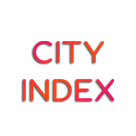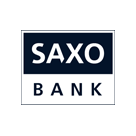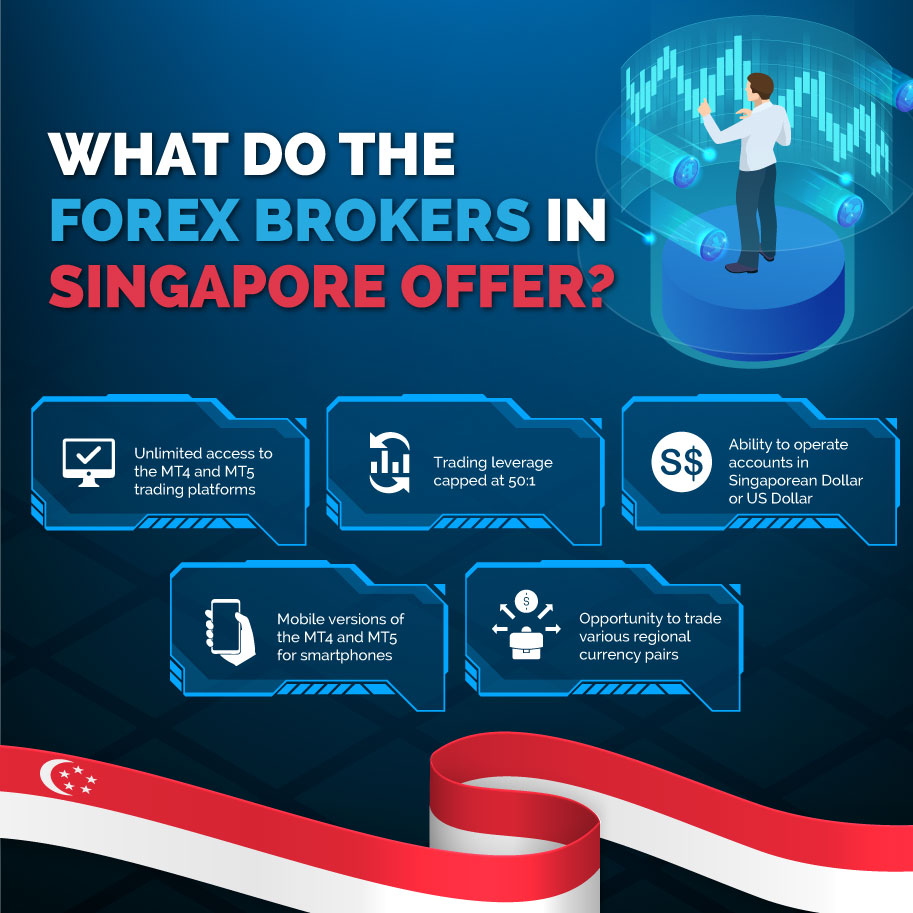Singapore enjoys a strong reputation as a global forex trading center after having seen strong growth in its financial sector over the past few decades.
The Monetary Authority of Singapore (MAS) is the sole regulator in charge of regulating the financial industry in Singapore. MAS is a highly regarded regulator, which has contributed to turning Singapore into one of the most reputable jurisdictions for forex trading in Asia.
Singapore is also a business-friendly country, which has led many of the largest global forex brokers to set up their regional headquarters in the city-state. Forex trading remains popular among Singapore residents, and the country is home to many high-profile independent traders.

 CityIndex (1983)
Leverage: up to 1:30
Deposit: from 10 USD
Spreads:
CityIndex (1983)
Leverage: up to 1:30
Deposit: from 10 USD
Spreads: 



 IG Markets (1974)
Leverage: up to 1:200 *
Deposit: from 300 USD
Spreads:
IG Markets (1974)
Leverage: up to 1:200 *
Deposit: from 300 USD
Spreads: 



 Oanda (2001)
Leverage: up to 1:50 *
Deposit: from 20 USD
Spreads:
Oanda (2001)
Leverage: up to 1:50 *
Deposit: from 20 USD
Spreads: 




 SwissQuote (2000)
Leverage: up to 1:100 *
Deposit: from 1000 USD
Spreads:
SwissQuote (2000)
Leverage: up to 1:100 *
Deposit: from 1000 USD
Spreads: 

 CMC Markets (1989)
Leverage: up to 1:500 *
Deposit: from 200 USD
Spreads:
CMC Markets (1989)
Leverage: up to 1:500 *
Deposit: from 200 USD
Spreads: 


 Plus500 (2008)
Leverage: up to 1:300
Deposit: from 100 USD
Spreads:
Plus500 (2008)
Leverage: up to 1:300
Deposit: from 100 USD
Spreads: 



 Saxo Bank (1992)
Leverage: up to 1:30
Deposit: from 2000 USD
Spreads:
Saxo Bank (1992)
Leverage: up to 1:30
Deposit: from 2000 USD
Spreads: 

 MultiBank Group (2005)
Leverage: up to 1:500
Deposit: from 50 USD
Spreads:
MultiBank Group (2005)
Leverage: up to 1:500
Deposit: from 50 USD
Spreads: 








 TD Ameritrade (1975)
Leverage: up to 1:50 *
Deposit: from 20 USD
Spreads:
TD Ameritrade (1975)
Leverage: up to 1:50 *
Deposit: from 20 USD
Spreads: 
 Interactive Brokers (1978)
Leverage: up to 1:50 *
Deposit: from 20 USD
Spreads:
Interactive Brokers (1978)
Leverage: up to 1:50 *
Deposit: from 20 USD
Spreads: 
Forex trading in Singapore is a legal activity performed under a strictly regulated environment to ensure participants' safety and protect investor confidence. Singapore is considered to be the significant forex trading hub in Asia, and its market trumps even that of Japan. The fact that several forex expos also hold in Singapore, attracting the trading elite in the Asia-Pacific zone, also puts the country in pole position as the go-to forex trading hub in that region.
The COVID-19 pandemic has only served to rev up interest in forex trading in Singapore. The Singaporean forex market is unique in that the country's central bank regulates this market. The same central bank also regulates the financial payments space. An integration of both sectors to ensure the smooth movement of legitimate funds into and out of the forex market thus exists. This has also led to a deepening of the development of the financial services sector.
Part of what has boosted investor confidence in Singapore's forex market is the country's status as an international financial hub, comparable with London and New York. FX trading in Singapore is a regulated activity. The country has very good financial and credit ratings from the rating agencies, ensuring a constant flow of investment money into the country.
Forex regulation in Singapore is the prerogative of the Monetary Authority of Singapore (MAS), the country's central bank. Forex brokers operating in Singapore must be licensed and regulated by MAS, which aims to ensure that they meet specific financial stability, risk management, and transparency standards. MAS also has guidelines to protect retail investors, such as restrictions on leverage and mandatory disclosure of risks.
With more than $640 billion of forex money passing through Singapore, according to the 2019 data from the Bank of International Settlements (BIS) Triennial Survey, it is the 3rd most extensive forex trading hub in the world after London and New York. The size of Singapore's FX market trumps that of Japan, making it the largest FX trading hub in the Asian-Pacific region.
The Singaporean FX market is unique in that it houses regional sales offices of the top five global banks/liquidity providers, providing exposure to several Asian currencies traded in the forex market, such as the Singaporean Dollar (SGD), Hong Kong Dollar (HKD), South Korean Won (KRW) and the Japanese Yen. Other Asian emerging market currencies, such as the Malaysian Ringgit (MYR) and the Aussie/Kiwi Dollars are also traded in these trading centres.
Maintaining the integrity of this market is the job of the Monetary Authority of Singapore (MAS). The MAS's work does not start and end with regulation and enforcement alone. It also extends to working with the wholesale market participants to improve the market's infrastructure, especially regarding e-trading. All forex brokers in Singapore must carry a license issued via authorization by the MAS. The MAS also requires staff within brokerage firms to possess industry-level certifications, with severe consequences if these are breached.
On 8 October 2019, the Monetary Authority of Singapore passed a new law that raised the minimum margin requirement for Singapore-based forex brokers from 2% to 5%. If you trade with a forex broker domiciled in Singapore, you must have a minimum margin of $5,000 for every Standard Lot position you open on USD pairs. It is only possible to bypass this if you trade with an offshore broker that offers services to Singaporean forex traders.
Singapore is Asia's biggest forex trading hub. You would hardly find Singaporean forex traders dealing with unregulated brokers. This is because they are used to market regulation and know nothing else. That is why the MAS has provided a robust regulatory structure that keeps the operations of forex brokers in Singapore and the staff that work within the industry in line with the law.
All Singapore forex brokers, whether domiciled in Singapore, or a representative office of a foreign brokerage company, must be authorized by the Monetary Authority of Singapore (MAS). This authorization comes either in the form of a Capital Markets Services license (common pathway) or a Financial Advisors' license. Passing the test that assesses the "Fit and Proper" state of the brokerage firm is key to getting the license. – practically all Forex and CFD brokers in the country have a Capital Markets Services license.
A forex broker in Singapore must have a minimum group shareholders' fund of SGD 200 million. Minimum share capital for a new forex brokerage company is SGD 100,000. However, suppose the forex brokerage is acquiring another one within Singapore. In that case, the brokerage to be acquired must have a 5-year operational track record and be valued at between 5 million and 10 million Singaporean Dollars. These requirements ensure that the forex brokerage is well-capitalized to conduct business with Singaporean forex traders and that they are well-grounded companies.
There is a need among Singaporean forex traders to trade the assets that are popular in the region. This includes the most popular Asian currencies. So forex brokers catering to traders in Singapore must be ready to offer pairs that feature these currencies, such as the USD/SGD, USD/HKD, USD/MYR, USD/KRW, and USD/JPY. Singaporean forex traders operate within the Asian time zone. This means that forex brokers in Singapore must, in addition to the Asian currencies, also offer currency pairs of the Oceania nations that form the major currency pairs such as the AUD/USD and NZD/USD.
There is also the matter of the payment channels via which forex traders in Singapore will move funds into and out of their trading accounts. Forex traders in Singapore highly favour the use of local payment methods. This is because these channels are highly effective and provide seamless transactions between traders and brokers. Card payments are the most favoured means of transaction, followed by wire transfers from the banking system and the NETS system of payments. Regarding credit/debit cards, MasterCard, VISA, American Express, and GrabPay are the commonest transactional channels. GrabPay, in particular, is a digital wallet that serves the entire Southeast Asian region. The advantage here is that the Monetary Authority of Singapore is not just the regulator of the forex market but the country's central bank. This also confers the MAS with powers to regulate the payments services industry. Therefore, it is easier for forex brokers in Singapore to synchronize the various payment systems, including the Network for Electronic Transfers (Singapore) Pte Ltd, with the various forex platforms.
Finally, Singapore forex traders also want access to the best retail forex trading platforms the market offers. The MT4 and MT5 trading platforms remain the mainstay of retail forex trading in Singapore and is offered by the forex brokers attending to forex trading clients in Singapore.
Here is what forex brokers in Singapore typically offer their clients.

The fact that Singapore is the biggest Asian forex trading hub has created a very competitive environment that can only be for the good of the local traders. As such, any forex brokers in Singapore know they have to be at the top of their game to give Singaporean forex brokers the best services possible. Our list of forex brokers that render services to Singaporean forex traders captures the essence of the kind of service that local traders desire. Feel free to go through this curated list and open an account to start trading forex in Singapore today.